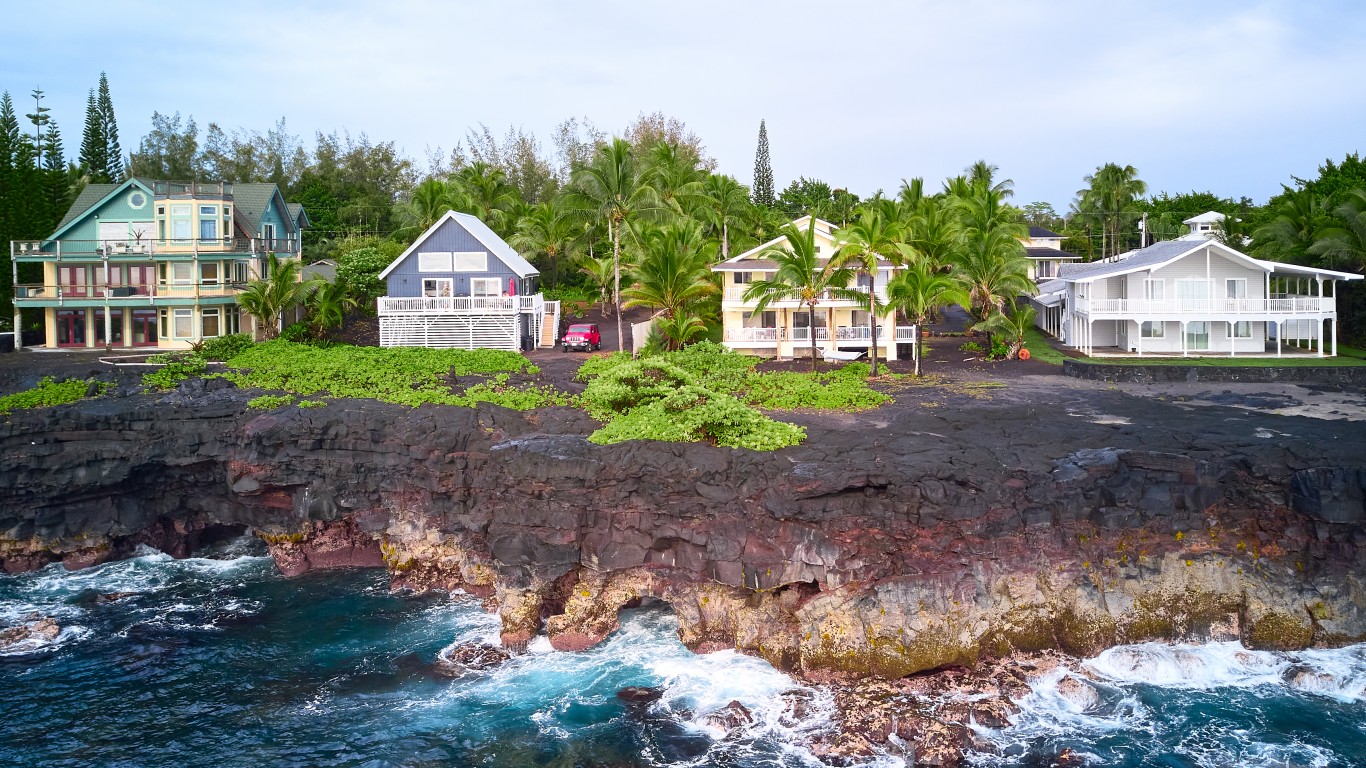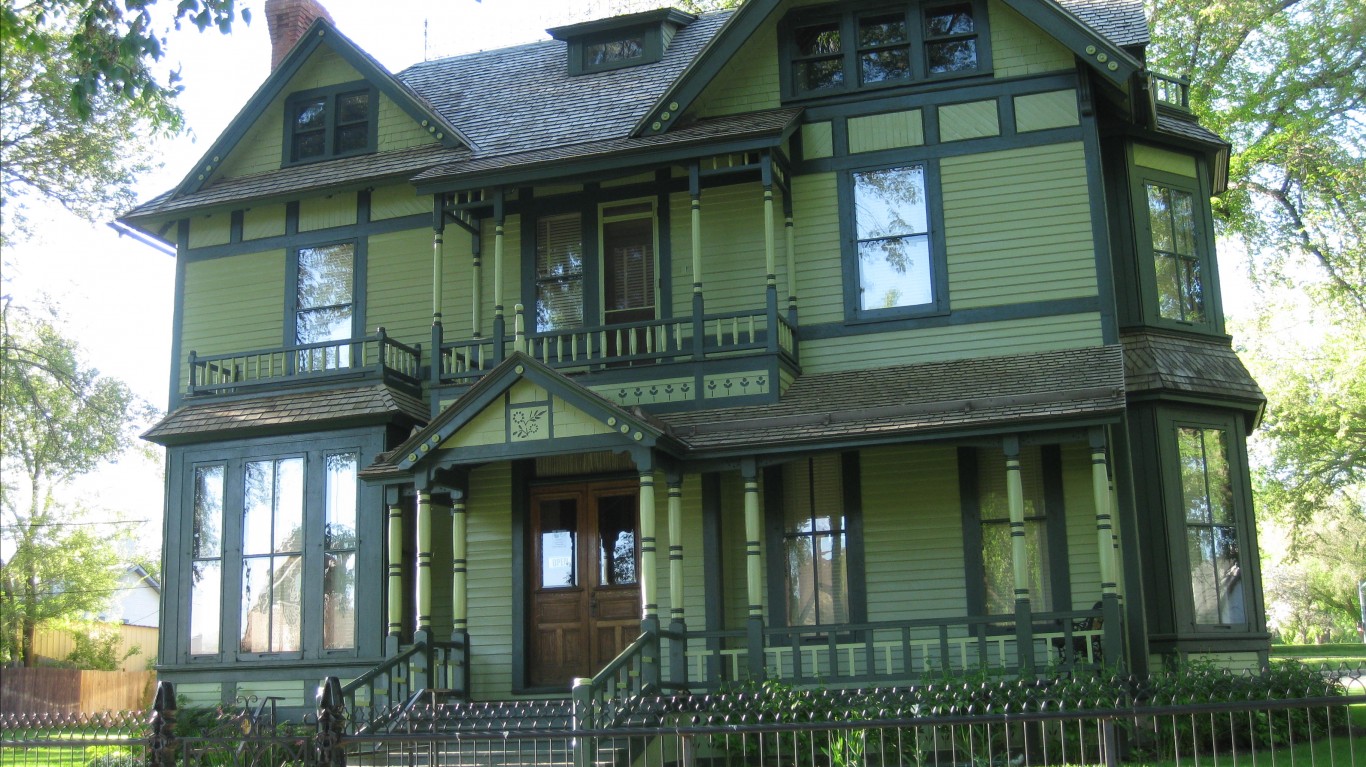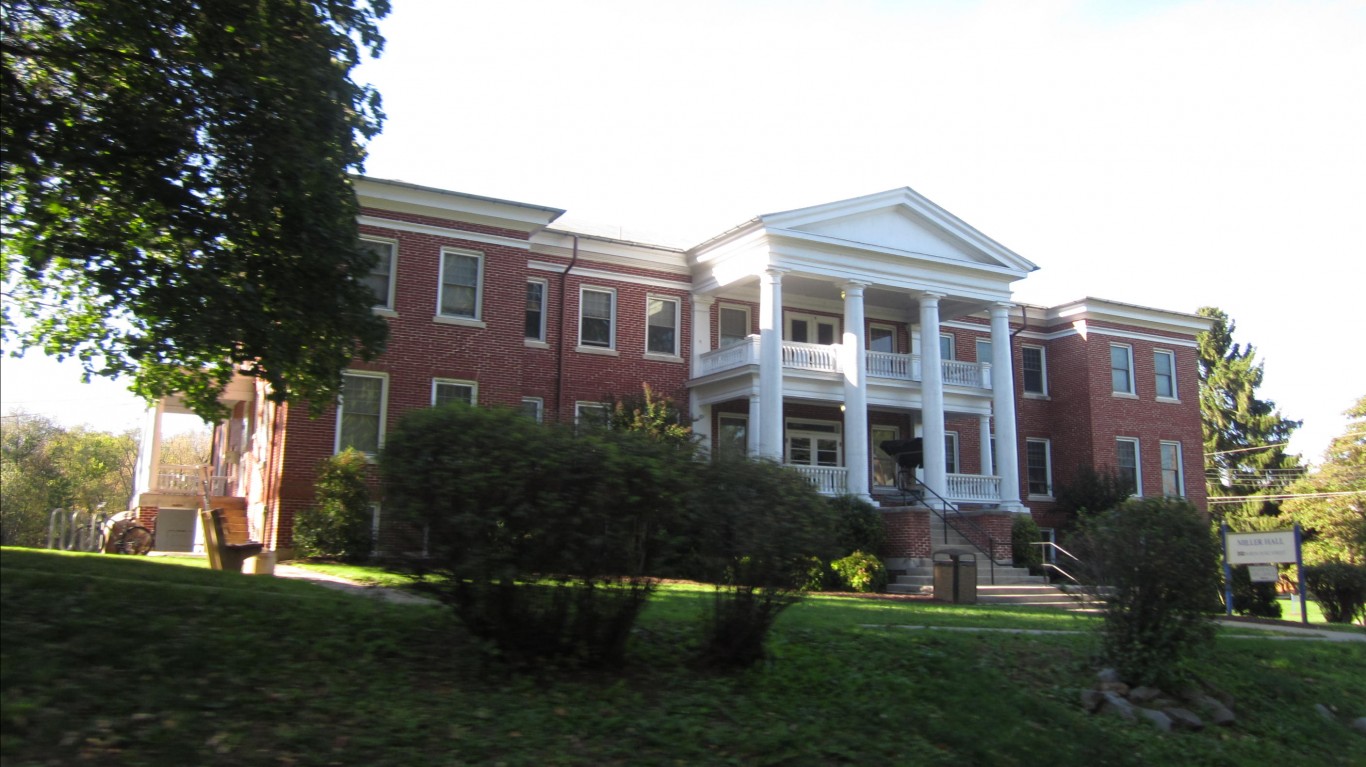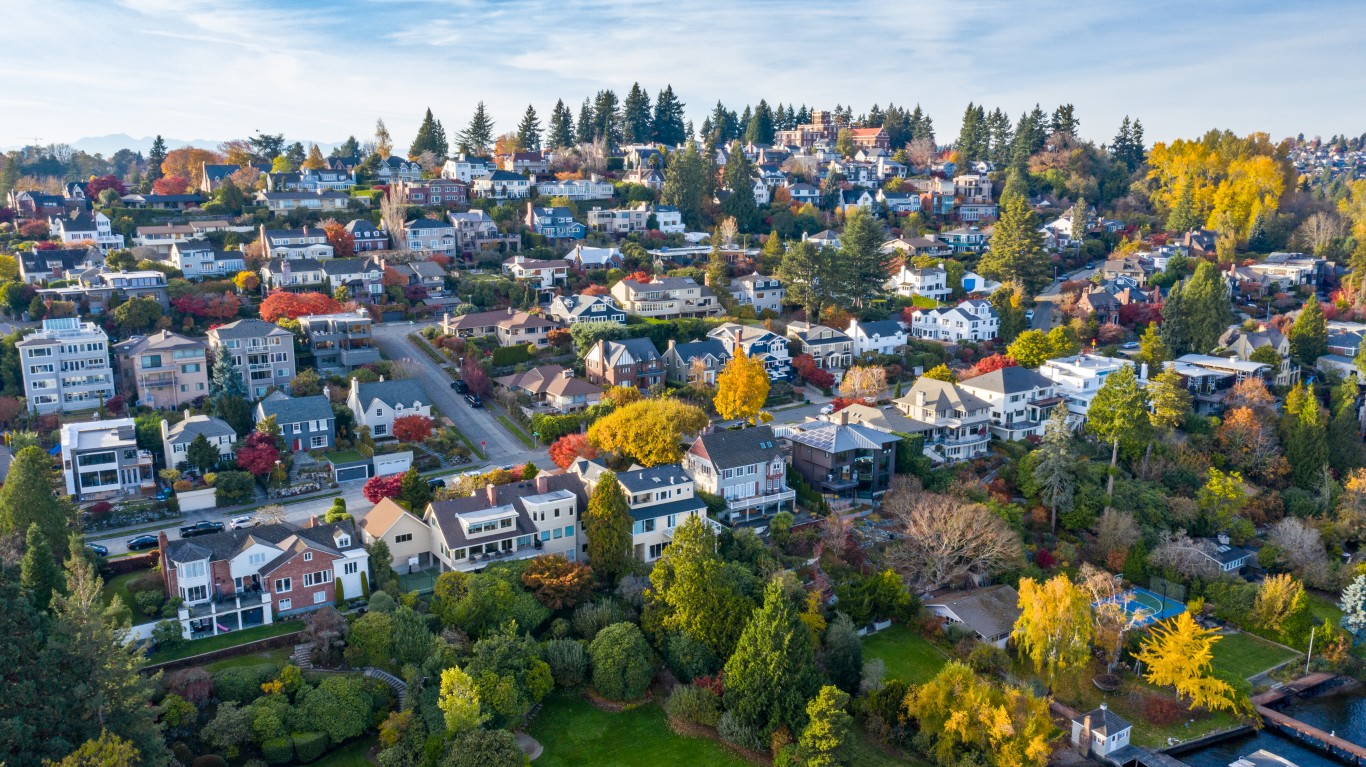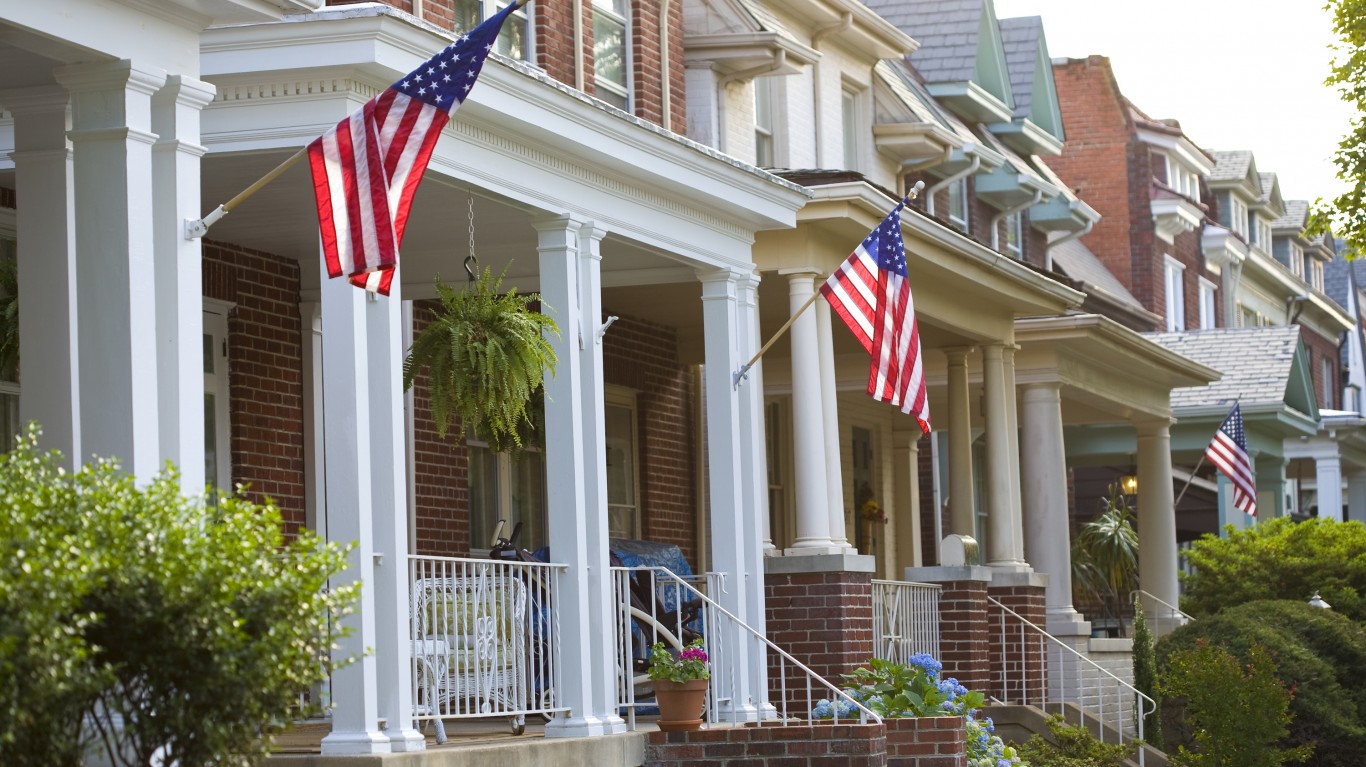
The residential real estate market in America has been described as out of control. Prices in some markets have risen 50% over the last two years. Nationwide, home prices were up almost 20% in 2021. Despite this boom, some markets have several unoccupied homes, and the state with the most empty houses is Vermont.
While several conditions have contributed to the rise in housing prices, none is more obvious than the historically low mortgage rates. Recently, however, interest rates have begun to rise. (This is the most at risk housing market in America.)
Real estate prices also rose as people moved from expensive coastal cities like New York and San Francisco to inland cities like Boise, Idaho, and Nashville, Tennessee. Median home prices in San Francisco run about three times the national figure of $350,000. Lower real estate prices were often married with an overall lower cost of living in attracting newcomers. (These are the cheapest cities to buy a home.)
Another contributor to American mobility and home prices rise began with the COVID-19 pandemic. Companies required employees to work from home for safety. Many workers will not be asked to go back or may become part of a hybrid workforce.
Unexpectedly, some states have high numbers of unoccupied houses. Online mortgage marketplace LendingTree released a new study titled “16 Million Homes Are Vacant in the U.S. — Here Are the States With the Highest Vacancy Rates.” Some of these homes are damaged enough to be uninhabitable. Others may be for sale and not occupied. Yet others are summer houses that are not occupied year-round.
The Census Bureau provided data on homes that have no occupants and LendingTree used this to provide its ranking. To find the state with the most empty houses, 24/7 Wall St. reviewed LendingTree’s ranking.
The state with the largest number of unoccupied homes, on a percentage basis, is Vermont at 22.86%. Maine is second at 22.68%, followed by Alaska at 20.51%. The authors note, “In total, that translates to more than 315,000 unoccupied houses across the three states.” These three states, however, are also among the 10 least populous.
At the far end of the list, the vacancy rate in Oregon is 7.76%, followed by Washington state at 8.87%, and Connecticut at 8.09%. These three states have almost 521,000 unoccupied housing units across, nearly 206,000 more vacant homes in Vermont, Maine, and Alaska.
Click here to see this is the State with the most empty houses

50. Oregon
> Vacancy rate: 7.76%
> Occupied housing units: 1,688,863
> Median home value: $373,500
[in-text-ad]

49. Washington
> Vacancy rate: 7.87%
> Occupied housing units: 2,987,658
> Median home value: $419,500

48. Connecticut
> Vacancy rate: 8.09%
> Occupied housing units: 1,406,237
> Median home value: $287,500

47. New Jersey
> Vacancy rate: 8.45%
> Occupied housing units: 3,346,036
> Median home value: $364,300
[in-text-ad-2]
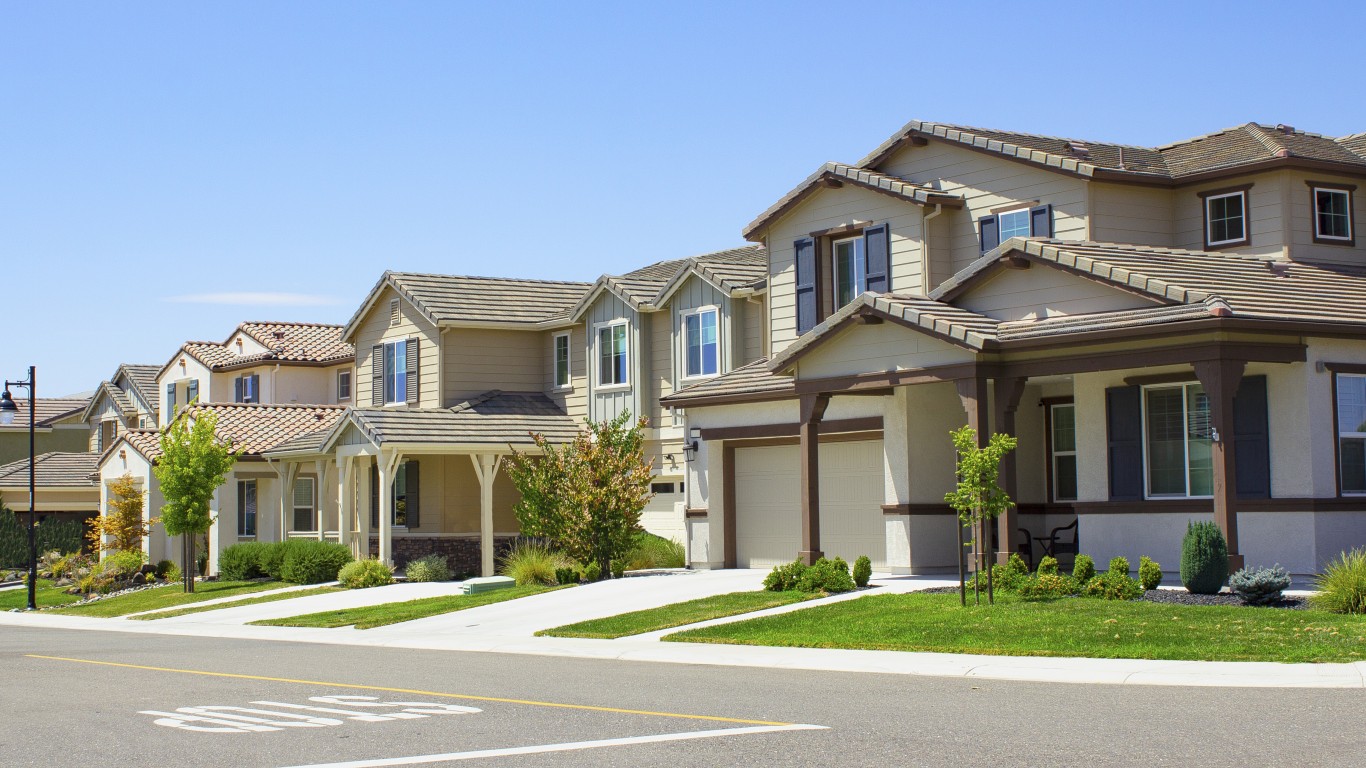
46. California
> Vacancy rate: 8.68%
> Occupied housing units: 13,135,388
> Median home value: $593,400
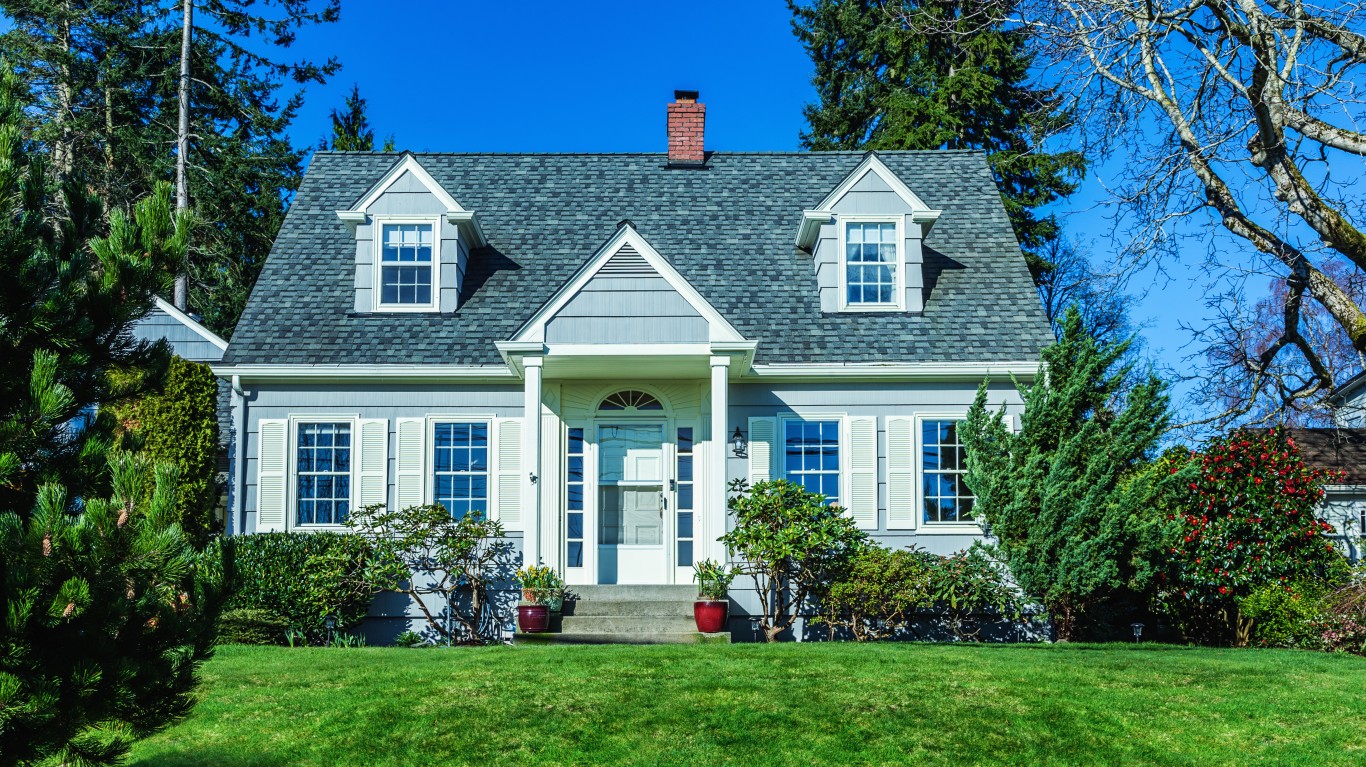
45. Massachusetts
> Vacancy rate: 8.73%
> Occupied housing units: 2,687,421
> Median home value: $439,800
[in-text-ad]

44. Illinois
> Vacancy rate: 9.12%
> Occupied housing units: 4,907,332
> Median home value: $214,300
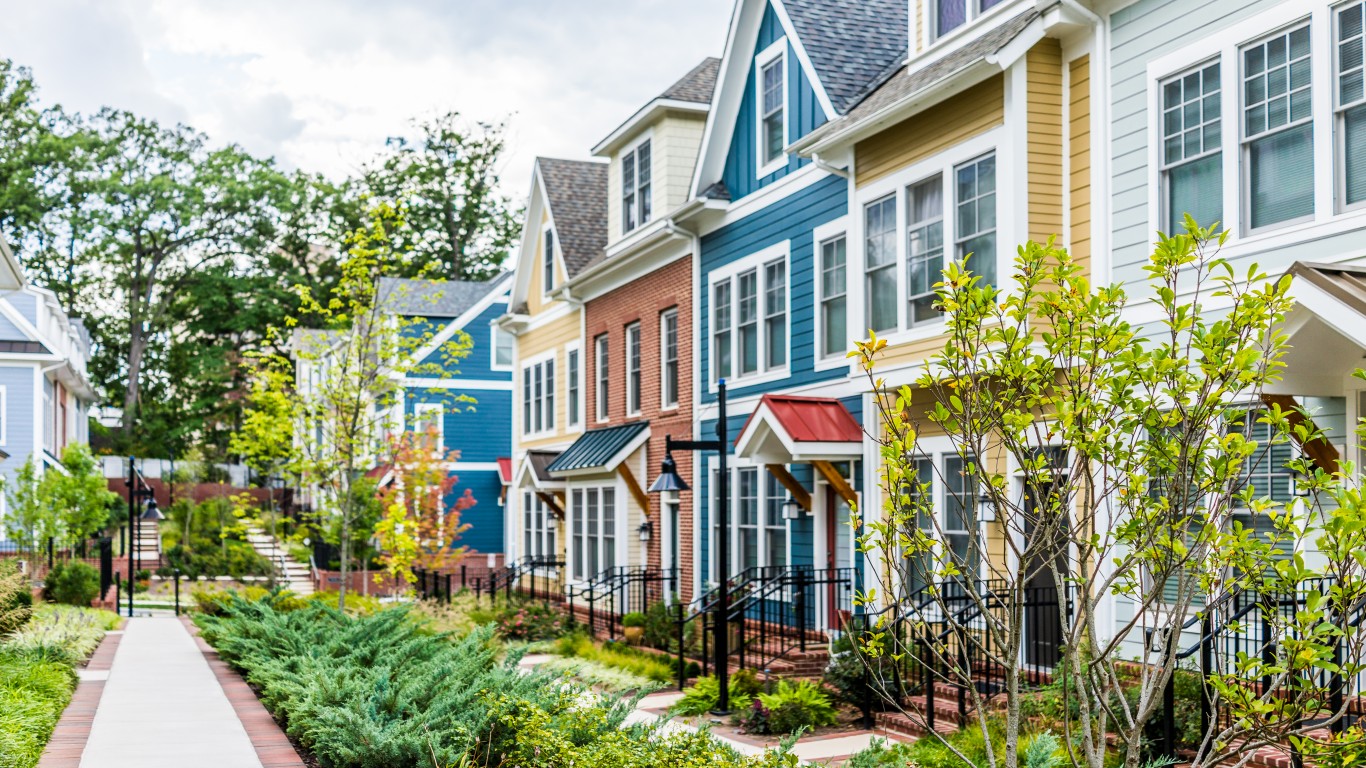
43. Maryland
> Vacancy rate: 9.14%
> Occupied housing units: 2,255,168
> Median home value: $344,700
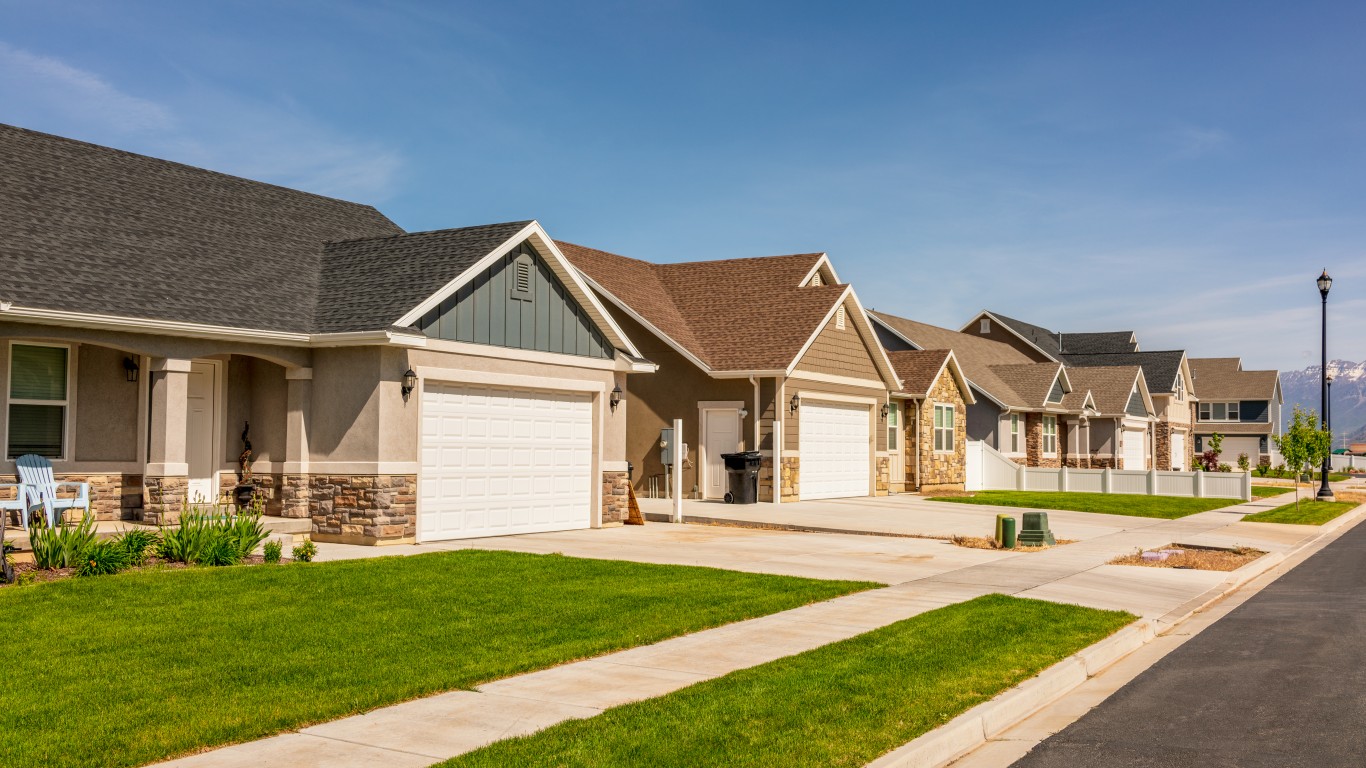
42. Utah
> Vacancy rate: 9.46%
> Occupied housing units: 1,052,033
> Median home value: $360,800
[in-text-ad-2]
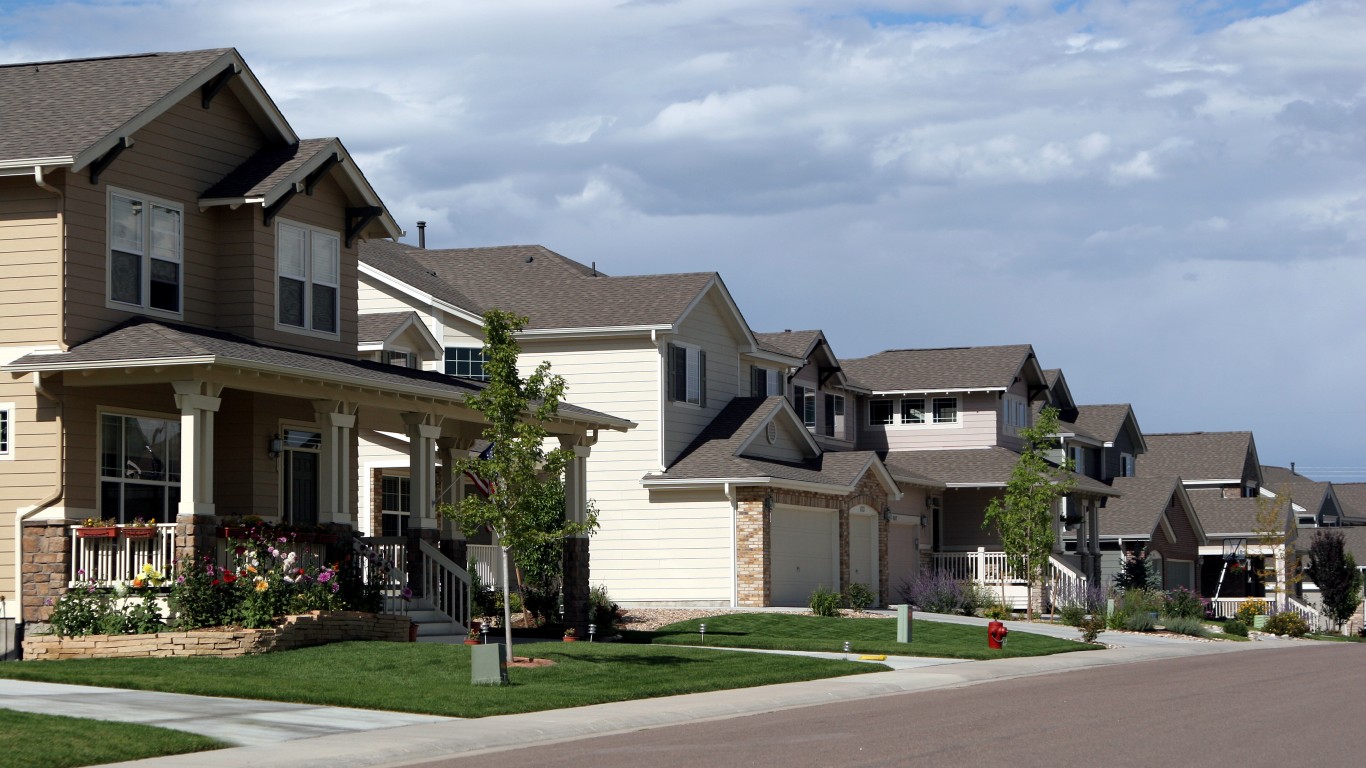
41. Colorado
> Vacancy rate: 9.50%
> Occupied housing units: 2,201,823
> Median home value: $415,700
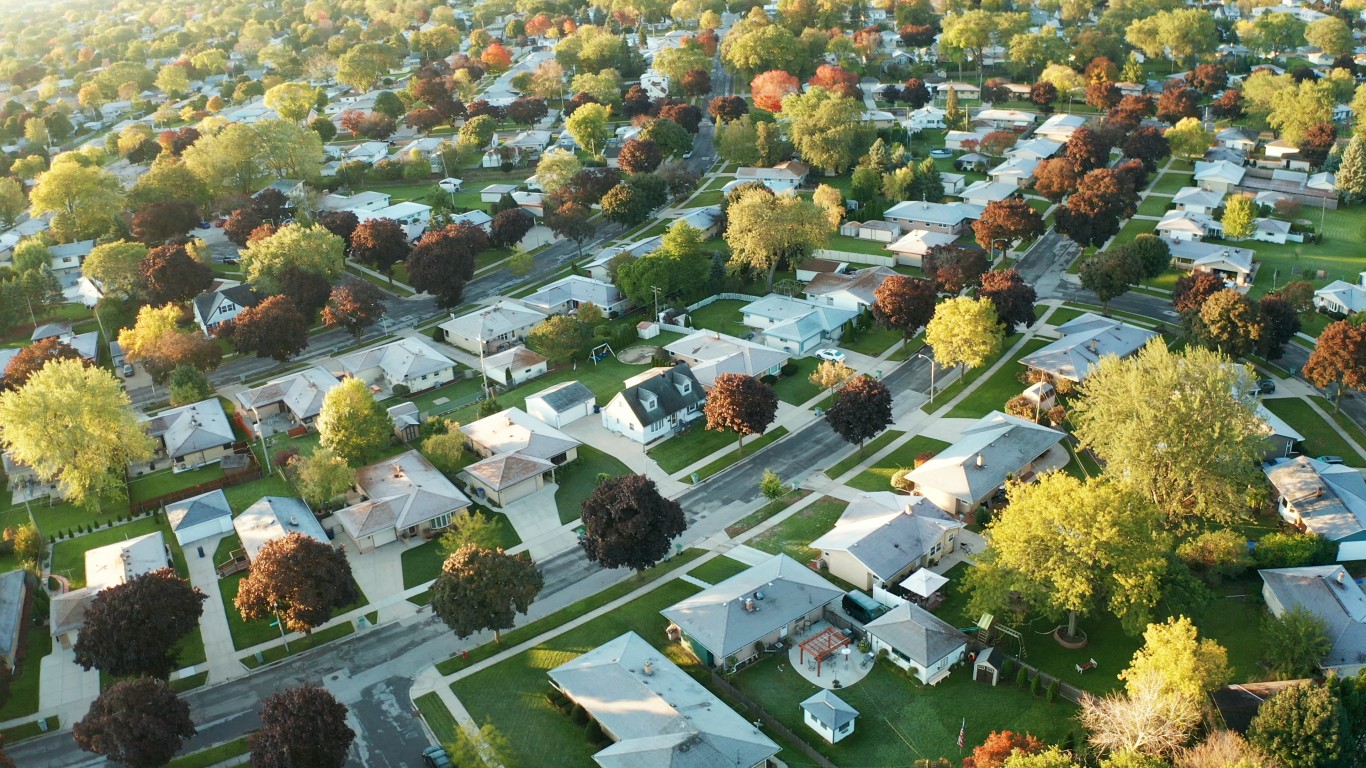
40. Ohio
> Vacancy rate: 9.64%
> Occupied housing units: 4,741,813
> Median home value: $164,000
[in-text-ad]

39. Nebraska
> Vacancy rate: 9.73%
> Occupied housing units: 774,402
> Median home value: $181,900

38. Pennsylvania
> Vacancy rate: 9.99%
> Occupied housing units: 5,178,588
> Median home value: $203,800

37. Nevada
> Vacancy rate: 10.11%
> Occupied housing units: 1,173,874
> Median home value: $333,000
[in-text-ad-2]
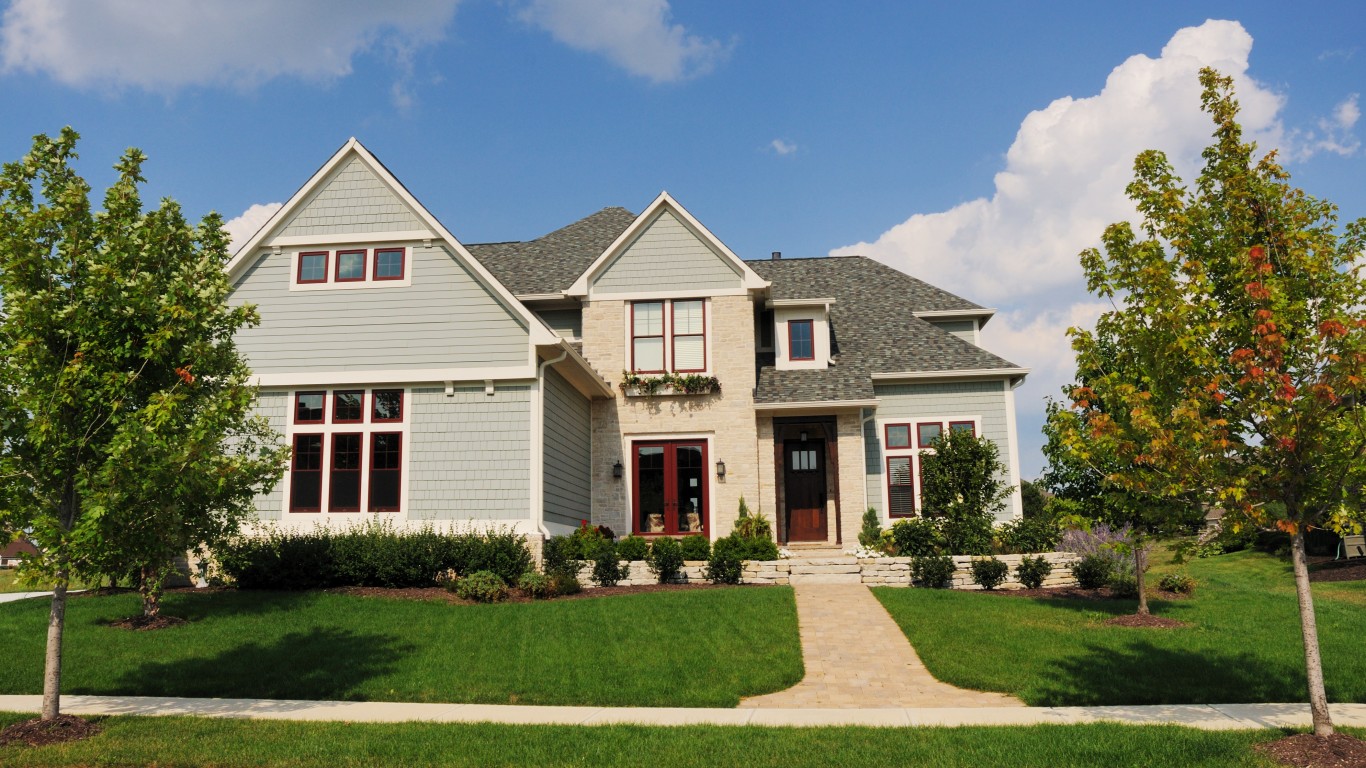
36. Indiana
> Vacancy rate: 10.15%
> Occupied housing units: 2,642,088
> Median home value: $163,500
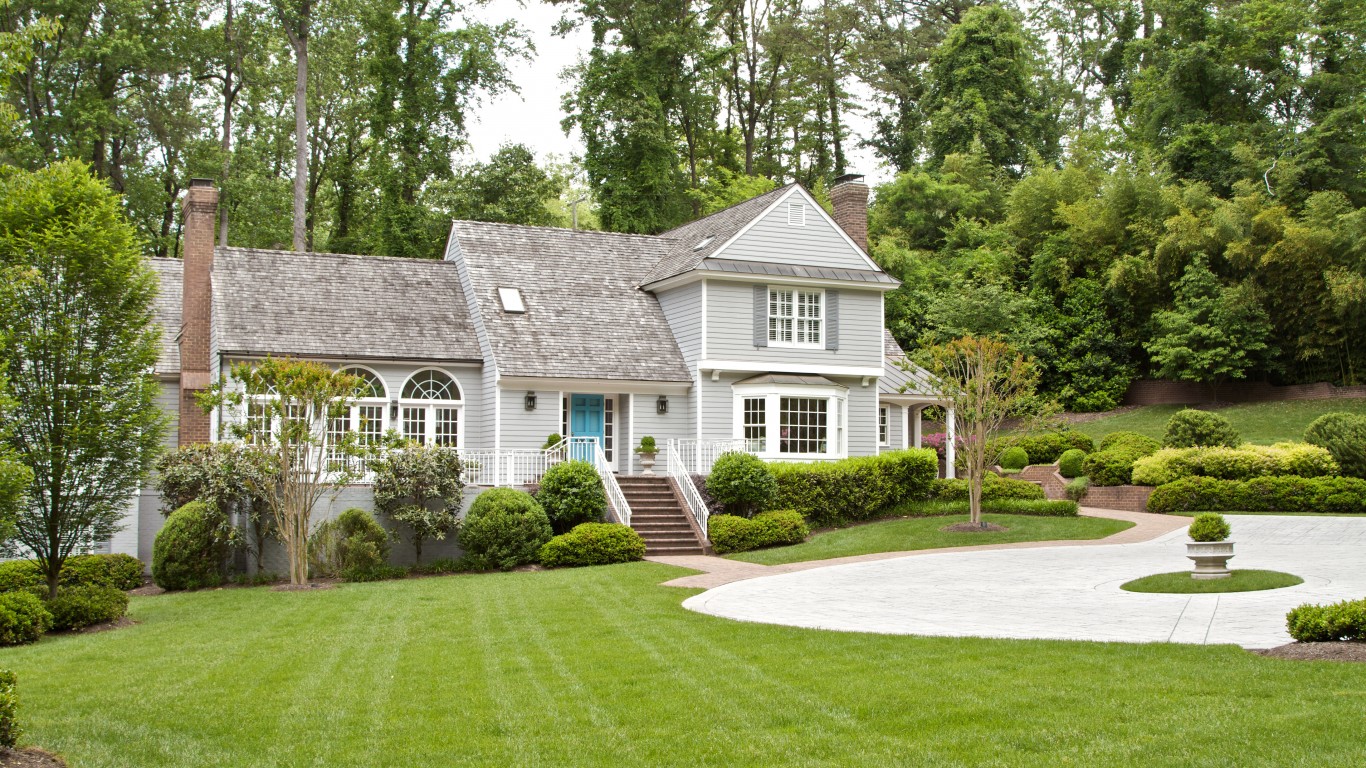
35. Virginia
> Vacancy rate: 10.40%
> Occupied housing units: 3,213,949
> Median home value: $305,100
[in-text-ad]
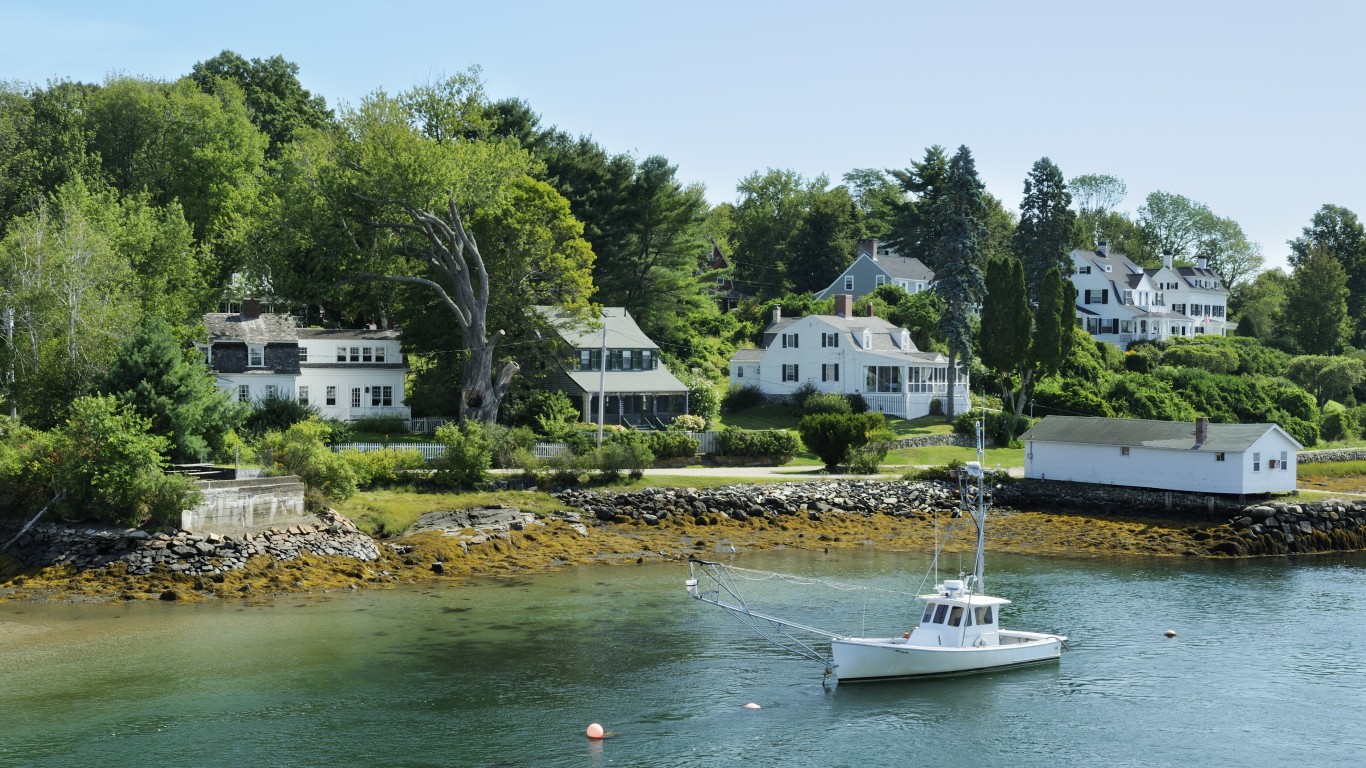
34. Rhode Island
> Vacancy rate: 10.55%
> Occupied housing units: 421,624
> Median home value: $302,200
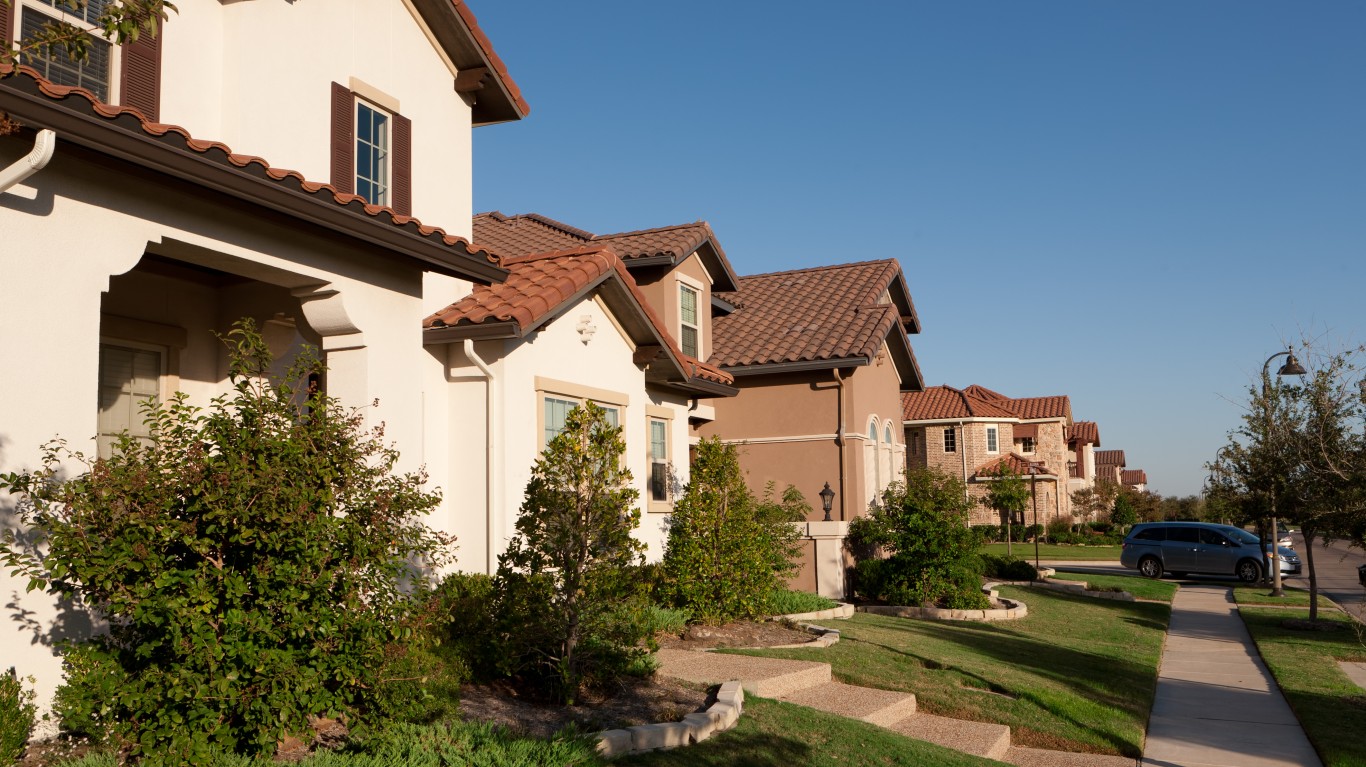
33. Texas
> Vacancy rate: 10.59%
> Occupied housing units: 10,270,966
> Median home value: $214,400

32. Iowa
> Vacancy rate: 10.71%
> Occupied housing units: 1,275,934
> Median home value: $164,000
[in-text-ad-2]

31. Minnesota
> Vacancy rate: 10.72%
> Occupied housing units: 2,234,764
> Median home value: $263,300

30. Kansas
> Vacancy rate: 10.98%
> Occupied housing units: 1,151,979
> Median home value: $166,200
[in-text-ad]

29. Arizona
> Vacancy rate: 11.09%
> Occupied housing units: 2,774,127
> Median home value: $278,400
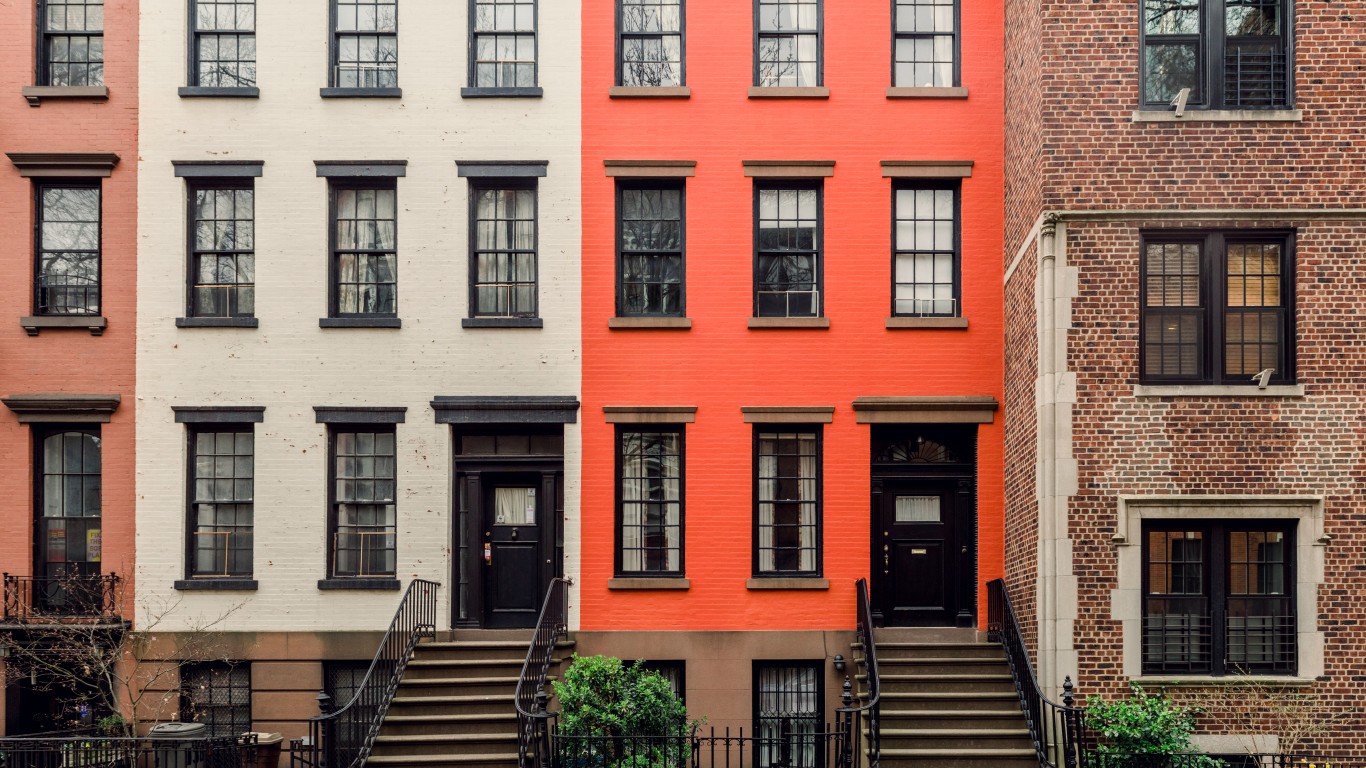
28. New York
> Vacancy rate: 11.31%
> Occupied housing units: 7,488,719
> Median home value: $353,100

27. Idaho
> Vacancy rate: 11.74%
> Occupied housing units: 678,555
> Median home value: $290,400
[in-text-ad-2]

26. Georgia
> Vacancy rate: 11.79%
> Occupied housing units: 3,904,930
> Median home value: $218,600

25. Tennessee
> Vacancy rate: 11.85%
> Occupied housing units: 2,702,490
> Median home value: $203,400
[in-text-ad]

24. Wisconsin
> Vacancy rate: 12.60%
> Occupied housing units: 2,393,344
> Median home value: $212,600

23. Kentucky
> Vacancy rate: 12.75%
> Occupied housing units: 1,759,434
> Median home value: $160,700

22. Missouri
> Vacancy rate: 13.06%
> Occupied housing units: 2,463,458
> Median home value: $176,000
[in-text-ad-2]
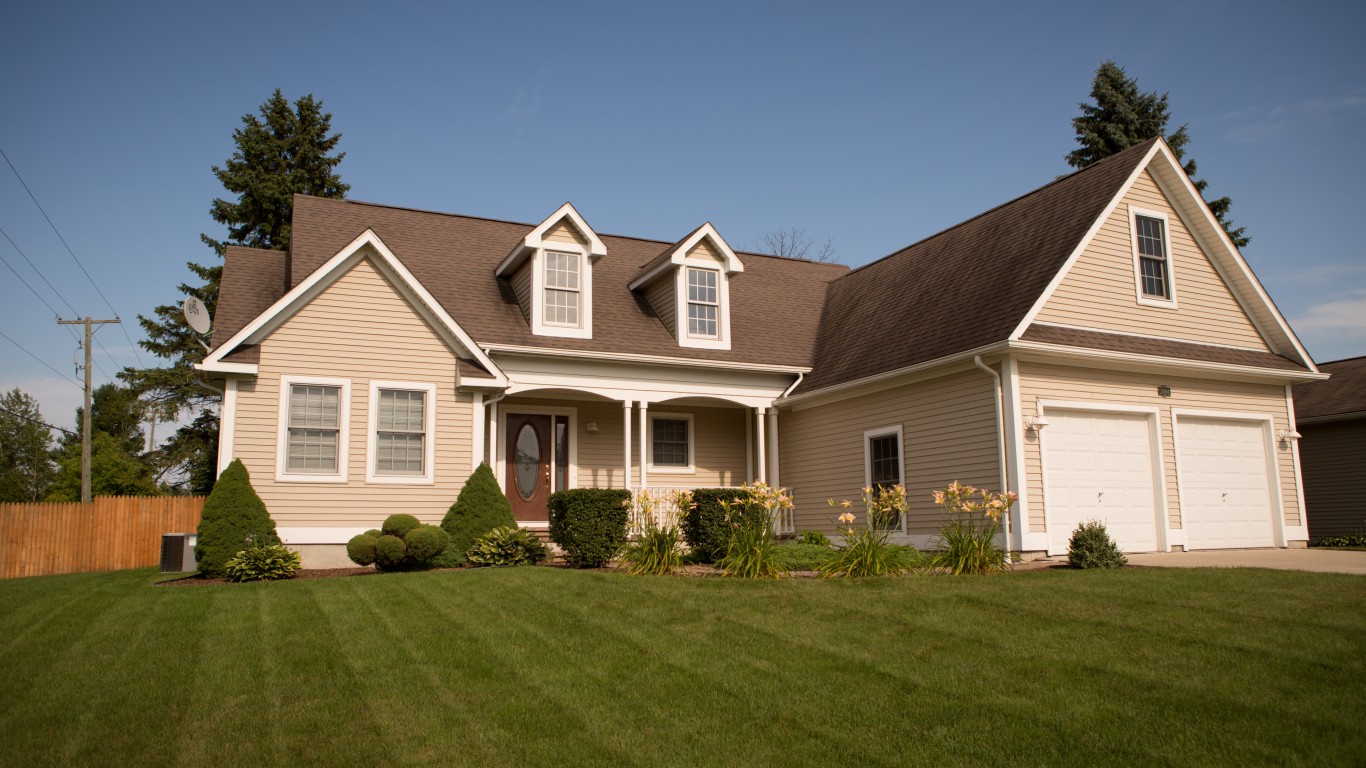
21. Michigan
> Vacancy rate: 13.60%
> Occupied housing units: 4,012,557
> Median home value: $179,500

20. Delaware
> Vacancy rate: 13.74%
> Occupied housing units: 387,778
> Median home value: $272,200
[in-text-ad]
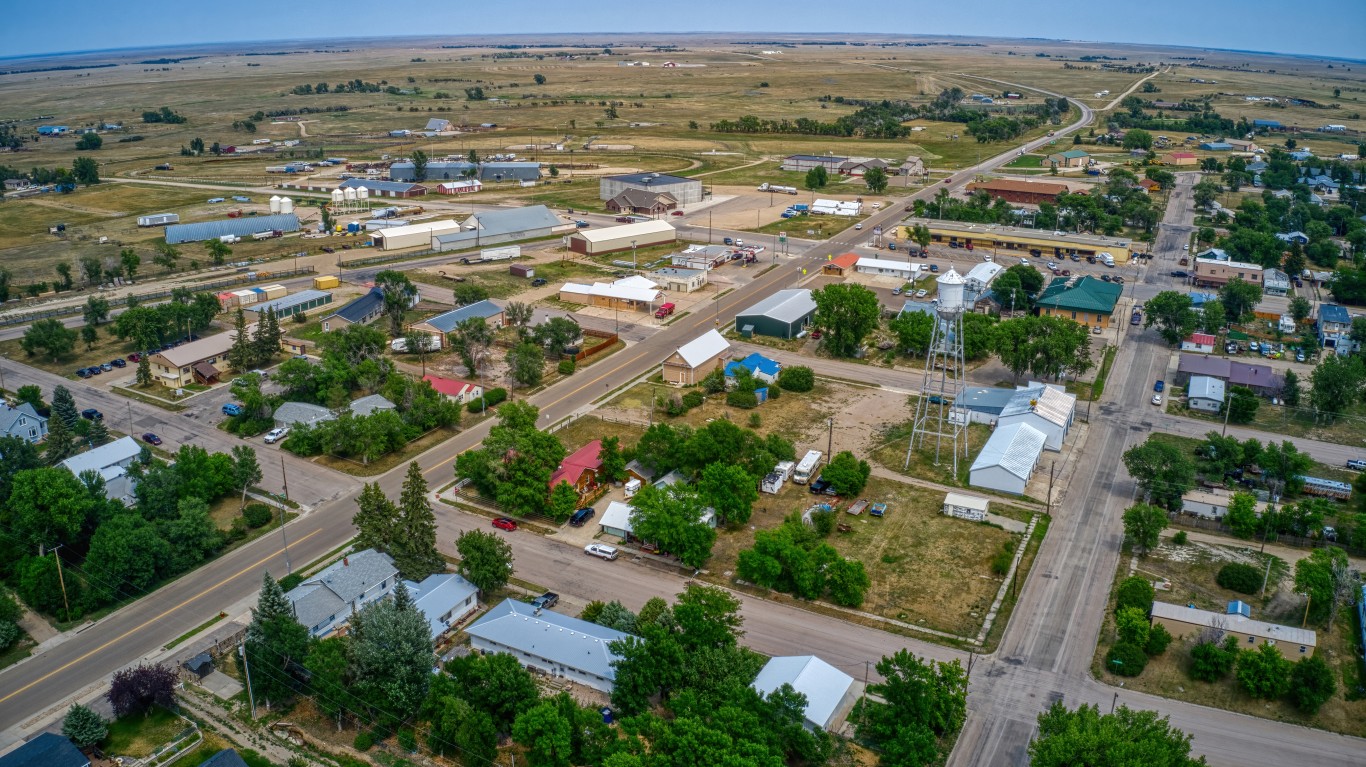
19. South Dakota
> Vacancy rate: 13.79%
> Occupied housing units: 349,073
> Median home value: $188,900
18. Hawaii
> Vacancy rate: 13.83%
> Occupied housing units: 477,480
> Median home value: $648,000

17. Oklahoma
> Vacancy rate: 13.95%
> Occupied housing units: 1,514,051
> Median home value: $152,500
[in-text-ad-2]

16. New Mexico
> Vacancy rate: 14.58%
> Occupied housing units: 816,574
> Median home value: $188,000
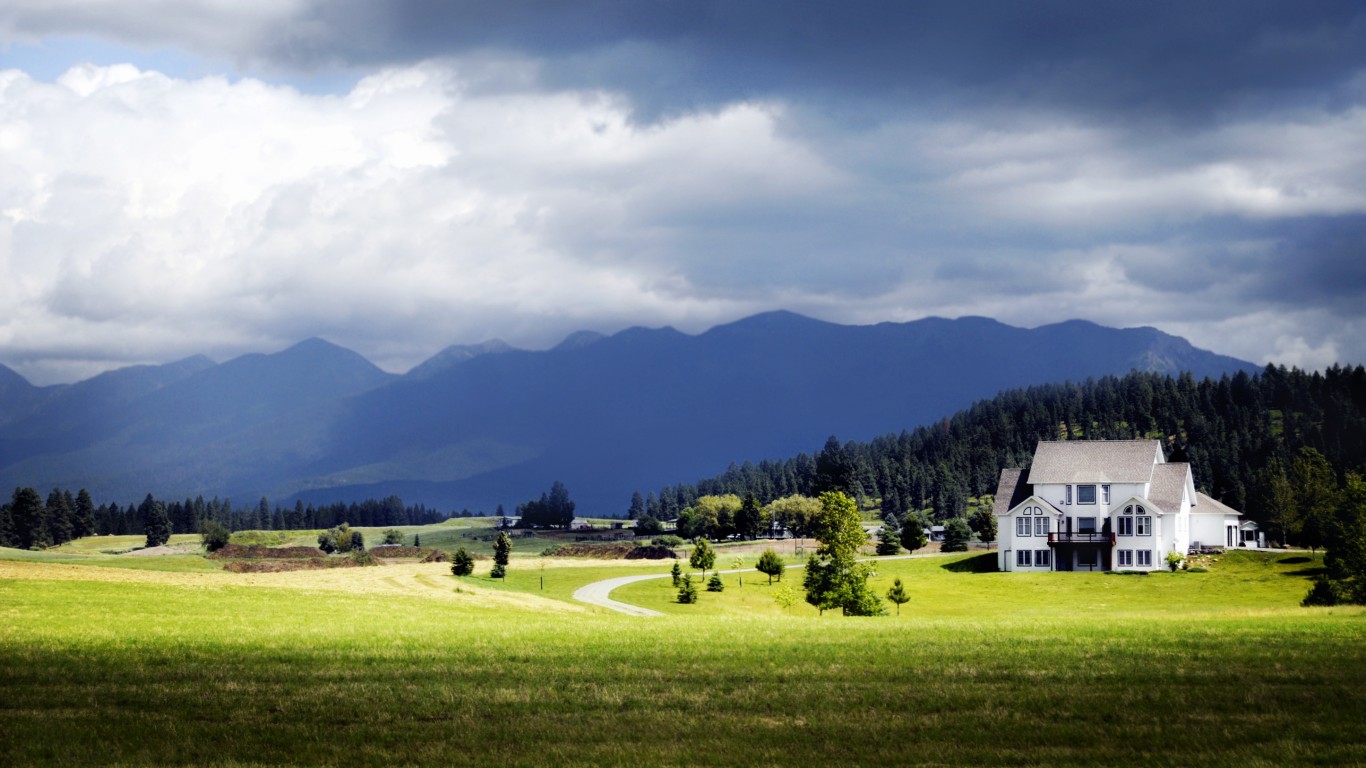
15. Montana
> Vacancy rate: 14.88%
> Occupied housing units: 446,572
> Median home value: $272,600
[in-text-ad]

14. North Carolina
> Vacancy rate: 15.06%
> Occupied housing units: 4,088,898
> Median home value: $207,300

13. Arkansas
> Vacancy rate: 15.38%
> Occupied housing units: 1,185,599
> Median home value: $141,800

12. South Carolina
> Vacancy rate: 15.80%
> Occupied housing units: 2,009,401
> Median home value: $189,500
[in-text-ad-2]
11. North Dakota
> Vacancy rate: 15.81%
> Occupied housing units: 321,697
> Median home value: $205,200
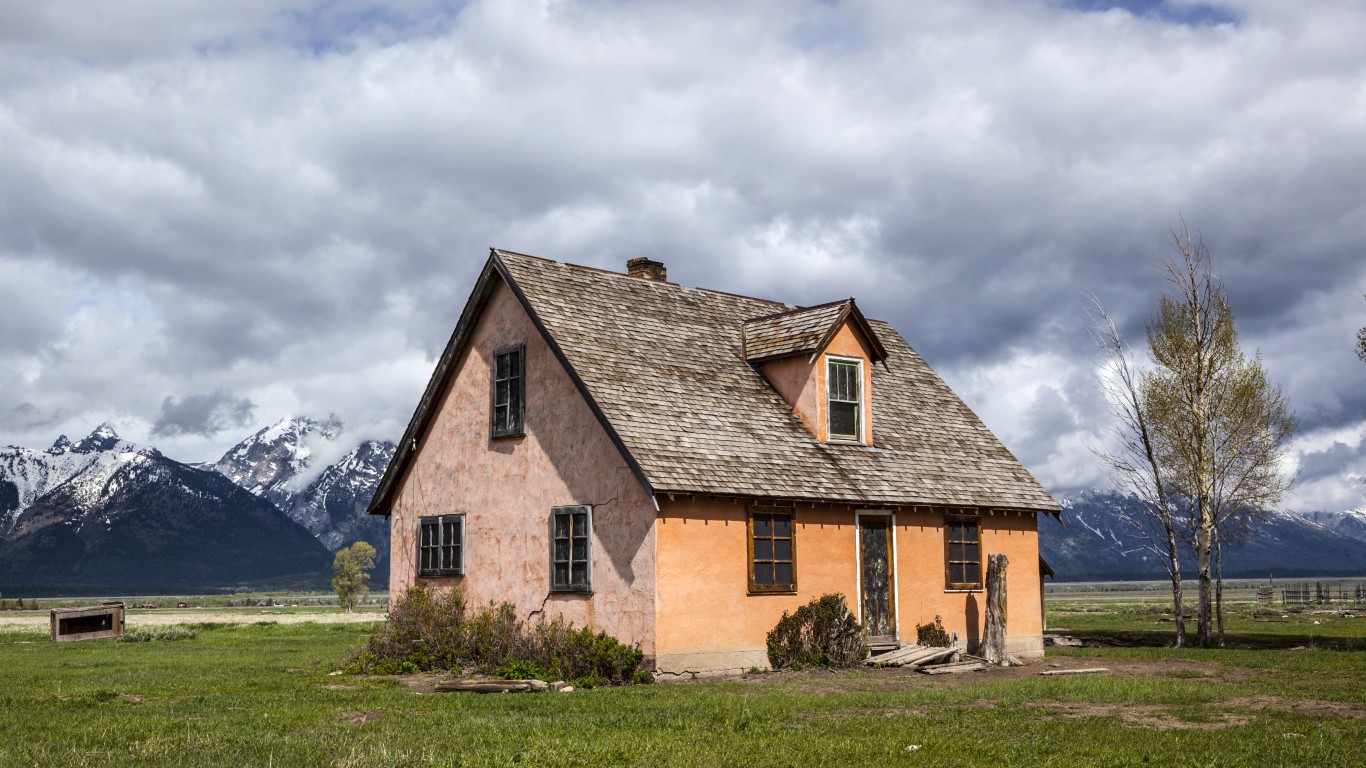
10. Wyoming
> Vacancy rate: 15.88%
> Occupied housing units: 237,179
> Median home value: $236,600
[in-text-ad]

9. Louisiana
> Vacancy rate: 16.21%
> Occupied housing units: 1,762,869
> Median home value: $174,000

8. Mississippi
> Vacancy rate: 16.26%
> Occupied housing units: 1,126,474
> Median home value: $135,100

7. New Hampshire
> Vacancy rate: 16.74%
> Occupied housing units: 538,552
> Median home value: $297,800
[in-text-ad-2]

6. Florida
> Vacancy rate: 17.13%
> Occupied housing units: 8,133,696
> Median home value: $261,500

5. Alabama
> Vacancy rate: 17.69%
> Occupied housing units: 1,895,330
> Median home value: $162,300
[in-text-ad]
4. West Virginia
> Vacancy rate: 18.12%
> Occupied housing units: 734,080
> Median home value: $130,500
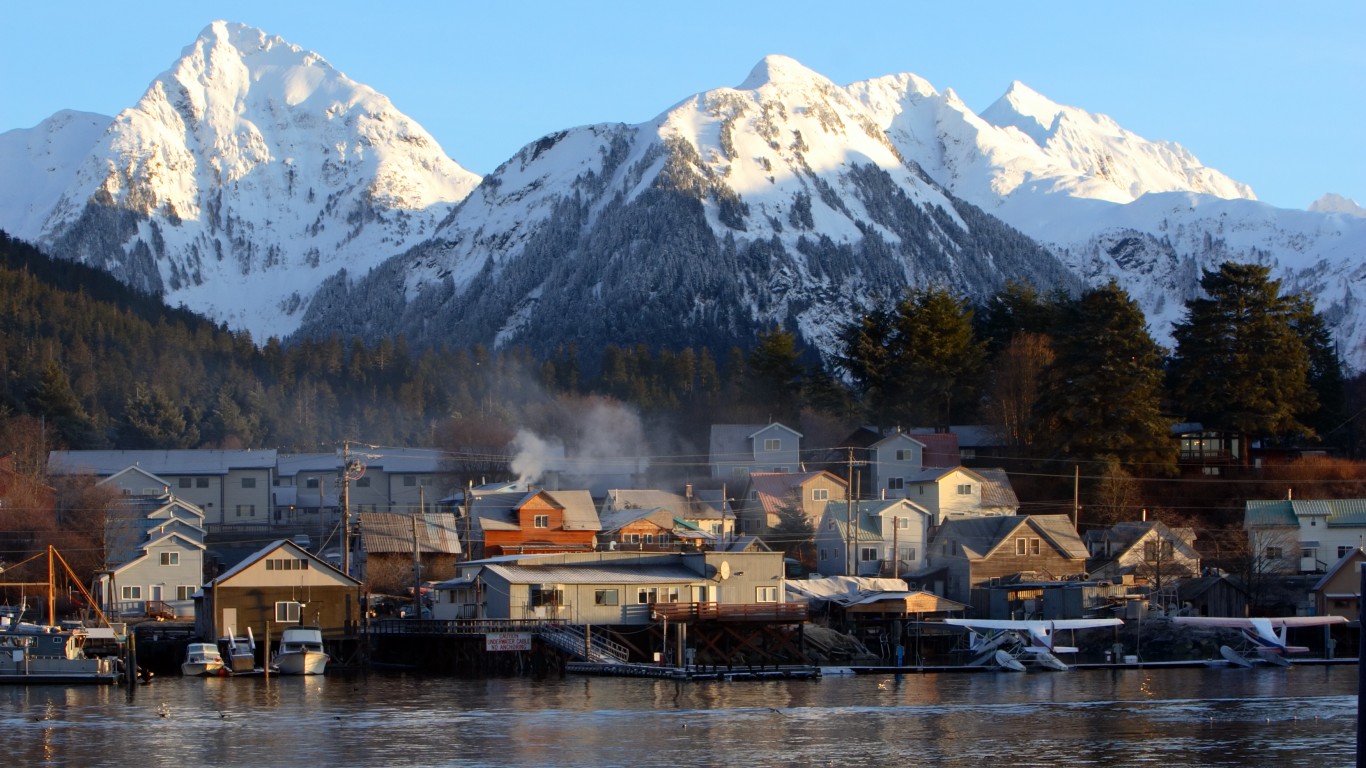
3. Alaska
> Vacancy rate: 20.51%
> Occupied housing units: 255,456
> Median home value: $288,100

2. Maine
> Vacancy rate: 22.68%
> Occupied housing units: 584,057
> Median home value: $211,000
[in-text-ad-2]
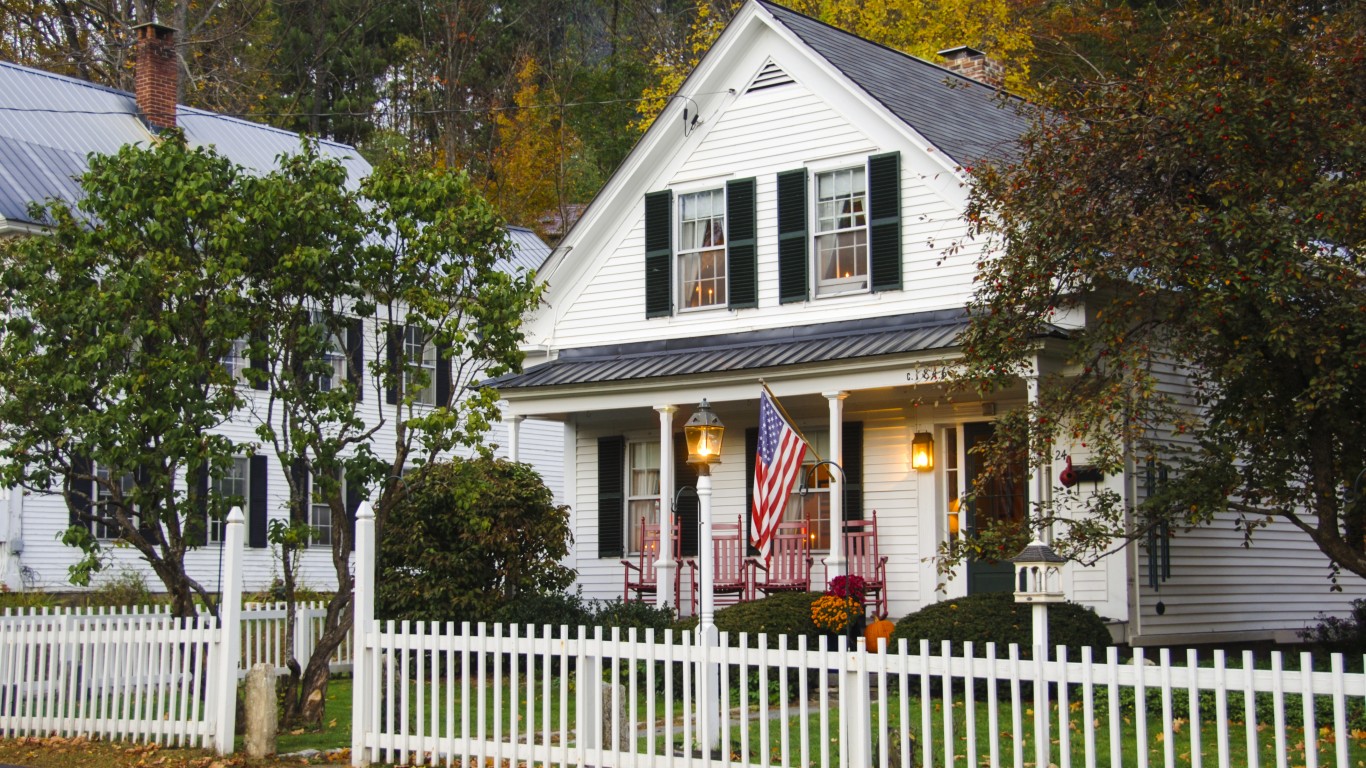
1. Vermont
> Vacancy rate: 22.86%
> Occupied housing units: 263,353
> Median home value: $235,000
Travel Cards Are Getting Too Good To Ignore (sponsored)
Credit card companies are pulling out all the stops, with the issuers are offering insane travel rewards and perks.
We’re talking huge sign-up bonuses, points on every purchase, and benefits like lounge access, travel credits, and free hotel nights. For travelers, these rewards can add up to thousands of dollars in flights, upgrades, and luxury experiences every year.
It’s like getting paid to travel — and it’s available to qualified borrowers who know where to look.
We’ve rounded up some of the best travel credit cards on the market. Click here to see the list. Don’t miss these offers — they won’t be this good forever.
Thank you for reading! Have some feedback for us?
Contact the 24/7 Wall St. editorial team.
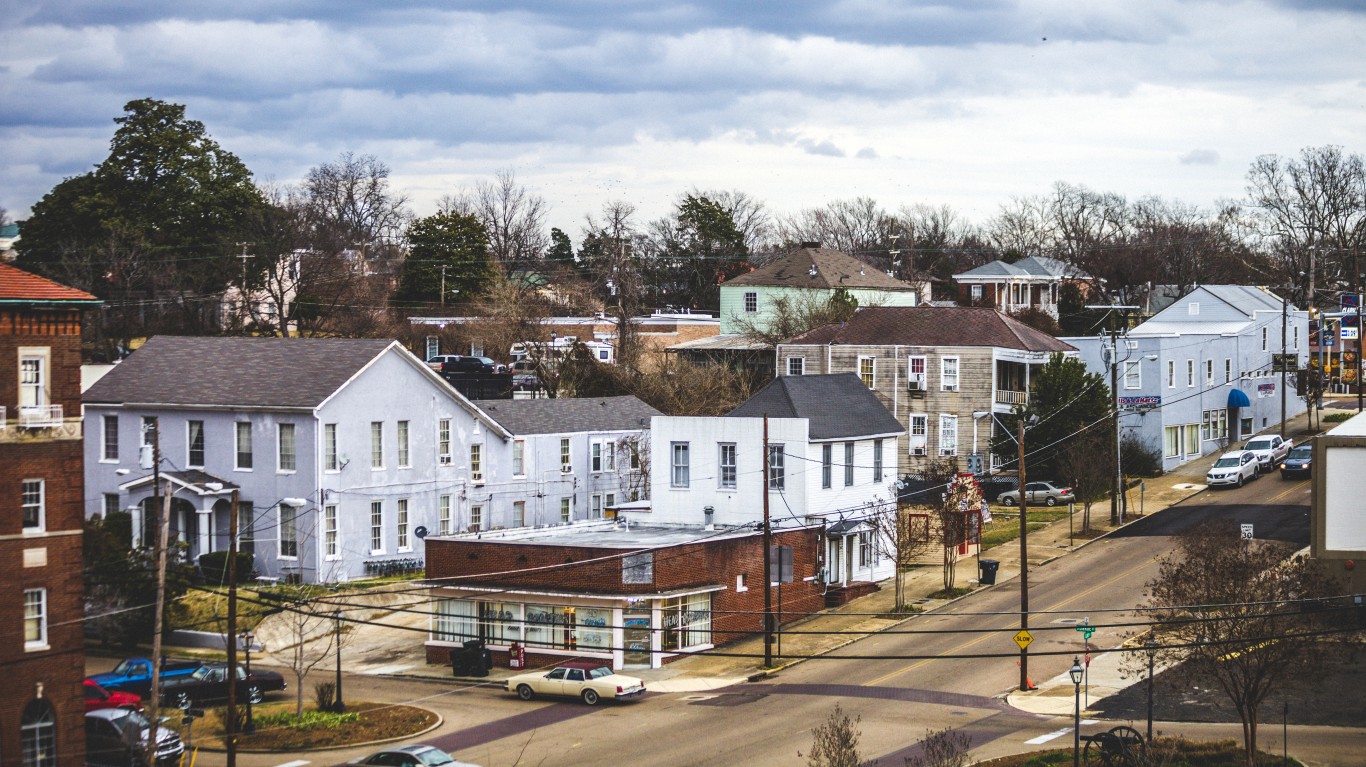 24/7 Wall St.
24/7 Wall St.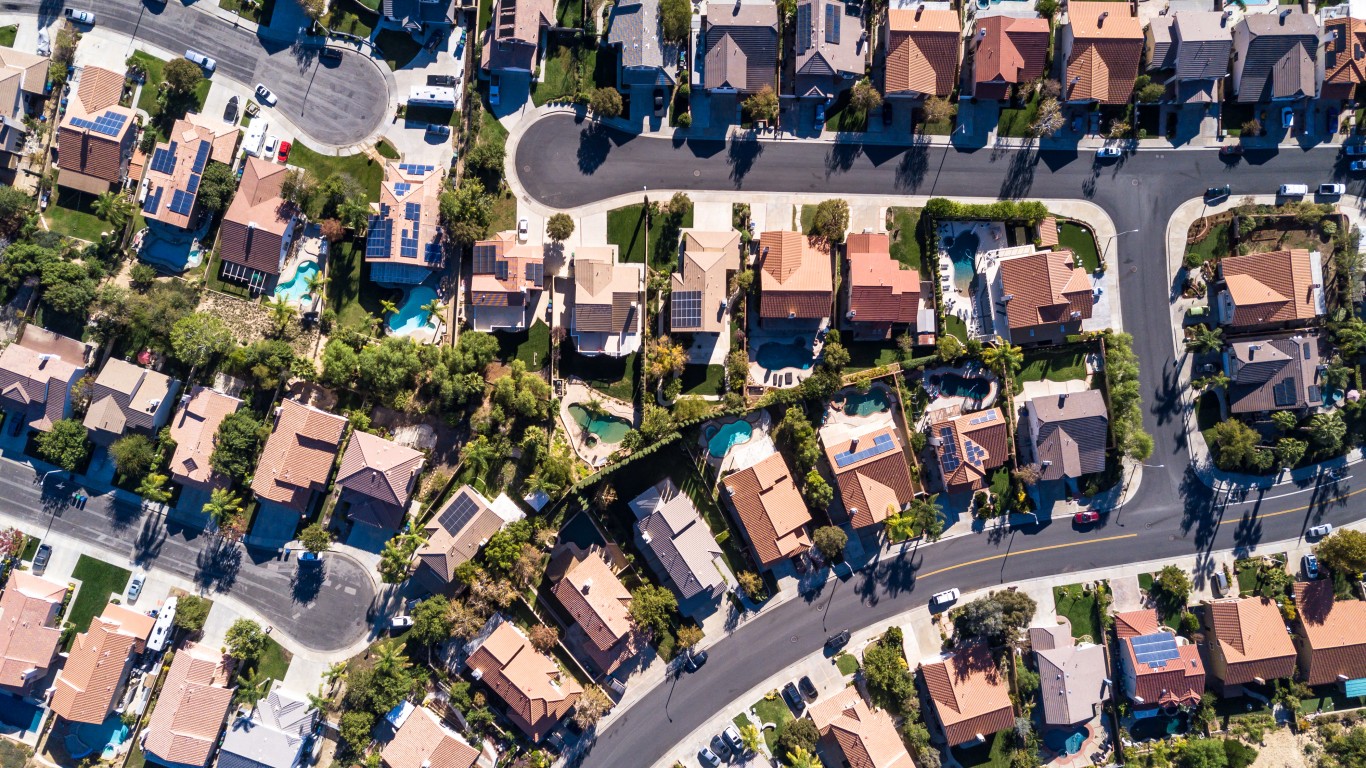 24/7 Wall St.
24/7 Wall St. 24/7 Wall St.
24/7 Wall St.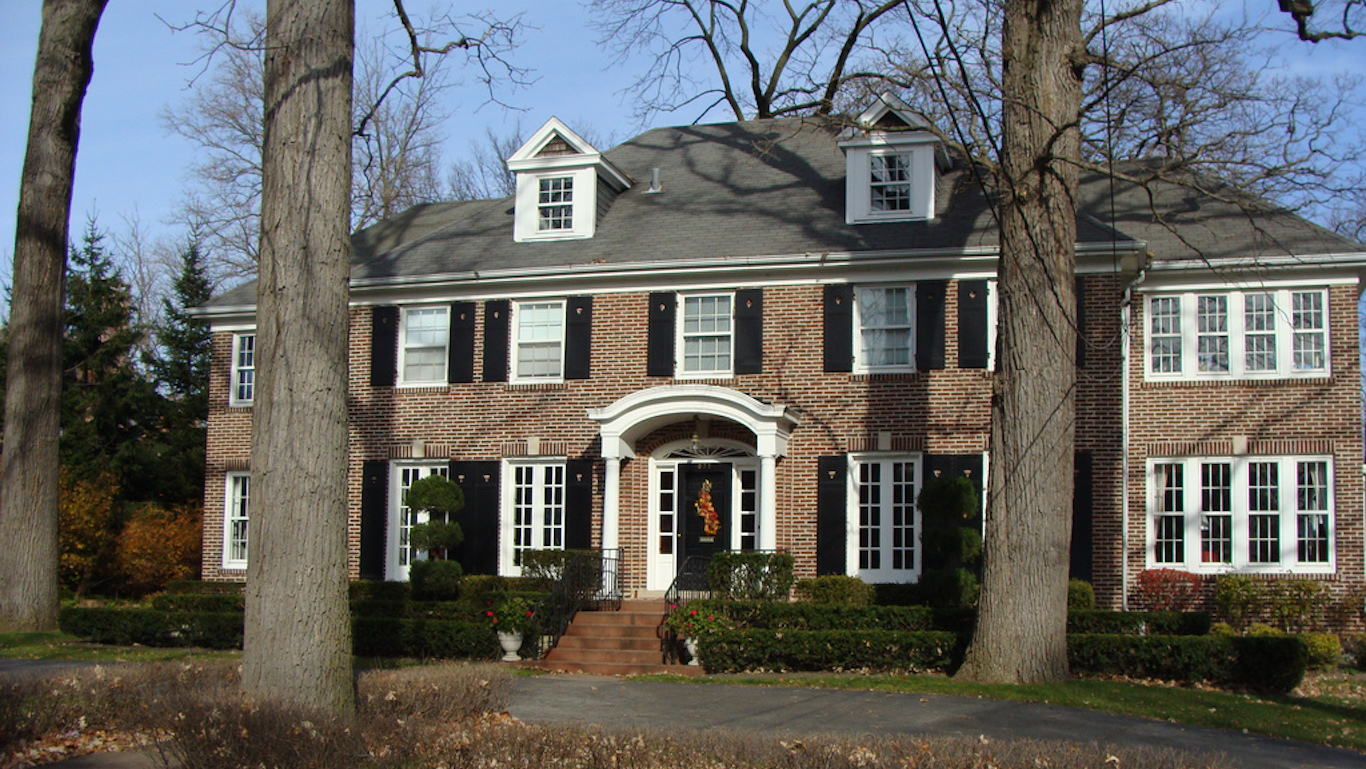 24/7 Wall St.
24/7 Wall St. 24/7 Wall St.
24/7 Wall St.